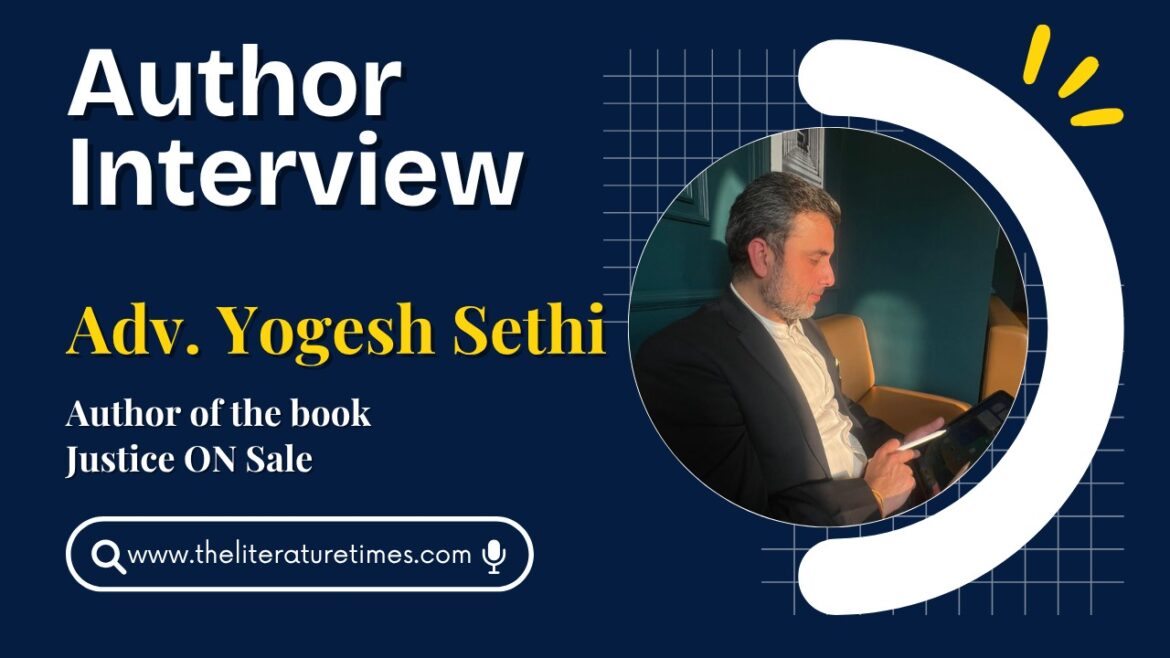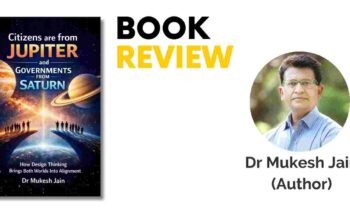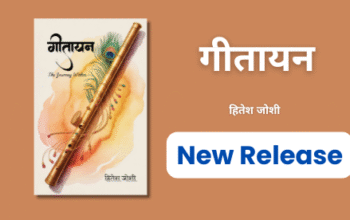1. You dedicate your book “To My Lords and Your Honours – You inspired this.” That’s a daring statement. What emotion lies behind it?
Author: The emotion behind that dedication is empathy and concern for the common litigant. Even today, when a person feels hopeless and has nowhere else to turn, their last hope is the court. But when they reach the court, they often face a system that is indifferent or inaccessible. That mix of compassion, frustration, and the desire for justice is what inspired me to dedicate the book in that way.
2. The book highlights how compromise has become a tool of convenience rather than justice. What does true compromise mean to you?
Author: To me, true compromise means that a person receives what they genuinely deserve. A compromise should ensure that the outcome reflects what they rightfully expected when they came to court, honestly and fairly.
3. You come from a three-generation legal family. How did that legacy shape your moral and professional outlook?
Author: Being part of a legal family for three generations, I grew up immersed in the profession. I’ve seen the system up close , both its glamour and its darker realities. This gave me a clear understanding of the intricacies of the profession, and early on, I realized that many things were not heading in the right direction.
4. You often use poetic metaphors – like “a passenger bound for Mussoorie but dropped at Saharanpur.” Do you see yourself as both lawyer and storyteller?
Author: It’s not about being a storyteller. The illustrations and metaphors are meant to make complex ideas simple and accessible. When I talk about ADR, not everyone knows what it is, and the legal system itself is already very difficult for a common person to understand.
These metaphors help people grasp what I am conveying. They are not there for drama or storytelling; they are a tool used by an advocate to explain rights clearly to those who might otherwise be unaware.
Big companies or wealthy individuals rarely face compromises, but small, ordinary people are often compelled to settle. These illustrations highlight their struggles and help people understand the realities of the system, rather than just telling a story.
5. How do you stay objective while writing about a system you’re still an active part of?
Author: I couldn’t have written this book without being an active part of the legal system myself. Until I experienced it firsthand, Every incident in the book reflects what happens on a day-to-day basis in court, so my observations come directly from real experience.
It’s easy to speak about a system you haven’t been part of, but having seen it closely gives one the right and responsibility to share what truly happens. For example-one should read texts like the Ramayana or Quran before commenting on any religion, in law, you need to have lived the system to meaningfully explain and critique it. That’s why my experiences naturally make me a storyteller.
6. In moments of disillusionment, what keeps your faith alive in the idea of justice?
Author: Justice is much bigger than the ADR system, and my book focuses on ADR because that is the part I am critical of. My complaint is not with the judicial system as a whole, but only with this one segment where ADR is promoted as a shortcut to ease the burden on courts.
What keeps my faith alive is that I see a system that largely works. In civil courts, for example, everything is organized – judges are present, applications are received and disposed of, and processes run efficiently. Even with its shortcomings in ADR, I believe in the larger framework of justice and in reforms such as unifying civil courts under one system to make it more accessible and efficient.
7. If you had to summarize Justice on Sale in one sentence for the common reader, what would you say?
Author: Never compromise unless you receive what you truly deserve, regardless of what anyone else says. The purpose of the law is to ensure that every litigant gets what they are rightfully entitled to. Its primary objective is to deliver justice to the common citizen, so one should never settle for anything less than what the law guarantees
8. The book’s tone alternates between anger and empathy. Which emotion guided your pen more?
Author: Disappointment guided my pen more than anger or empathy. It was the sense of seeing the system fail those who rely on it that shaped the tone of the book.
9. What role do you believe literature not just law can play in reforming society’s moral compass?
Author: Law sets the rules, but literature can touch people’s hearts and change the way they think. Through stories, examples, and metaphors, it helps people reflect on justice, fairness, and integrity. Literature can inspire empathy and a sense of what is right, and together with law, it can help shape society’s moral compass.
10. Finally, what do you hope readers feel after finishing your book outrage, hope, or resolve?
Author: Above all, I want readers to feel hope. The book wouldn’t exist if I didn’t believe that the system can change for the better. Despite its flaws, I see a silver lining, and I hope it inspires readers to believe in the possibility of meaningful reform and justice.
Book By Yogesh Sethi : Justice On Sale
Buy Book : Amazon



